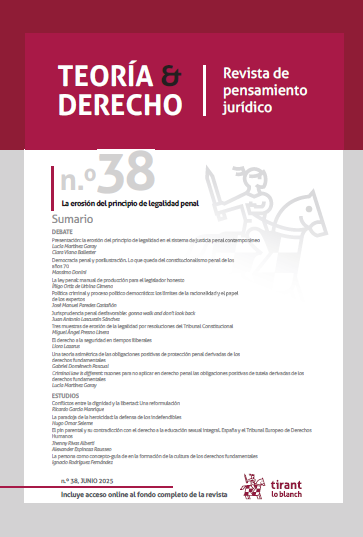The parental pin and its contradiction with the human right to comprehensive sexuality education. Spain and the European Court of Human Rights
DOI:
https://doi.org/10.36151/TD.2025.127Keywords:
Comprehensive sex education, parental PIN, state neutralityAbstract
Through the parental PIN, parents can object to or veto certain content in educational programs, considering them contrary to their moral, religious, and even philosophical convictions. This parental veto is based on the preferential right of parents to the moral and religious education of their children, a right limited by the fundamental rights and freedoms of children and adolescents. Comprehensive sexuality education aims to acquire accurate, neutral, pluralistic, and objective information about sexuality, based on scientific evidence, and appropriate for the age and maturity of the child. The content of sexuality education also includes aspects directly related to democratic principles, values, and fundamental rights enshrined in the Constitution, which are essential for peaceful and responsible coexistence in society. The State, in fulfilling its duty of neutrality in education, must ensure that the content and method of delivery of comprehensive sexuality education comply with the characteristics of neutrality, objectivity, pluralism, and non-indoctrination.
Downloads
Downloads
Published
Issue
Section
License
Copyright (c) 2025 Teoría & Derecho. Revista de pensamiento jurídico

This work is licensed under a Creative Commons Attribution-NonCommercial-NoDerivatives 4.0 International License.





















